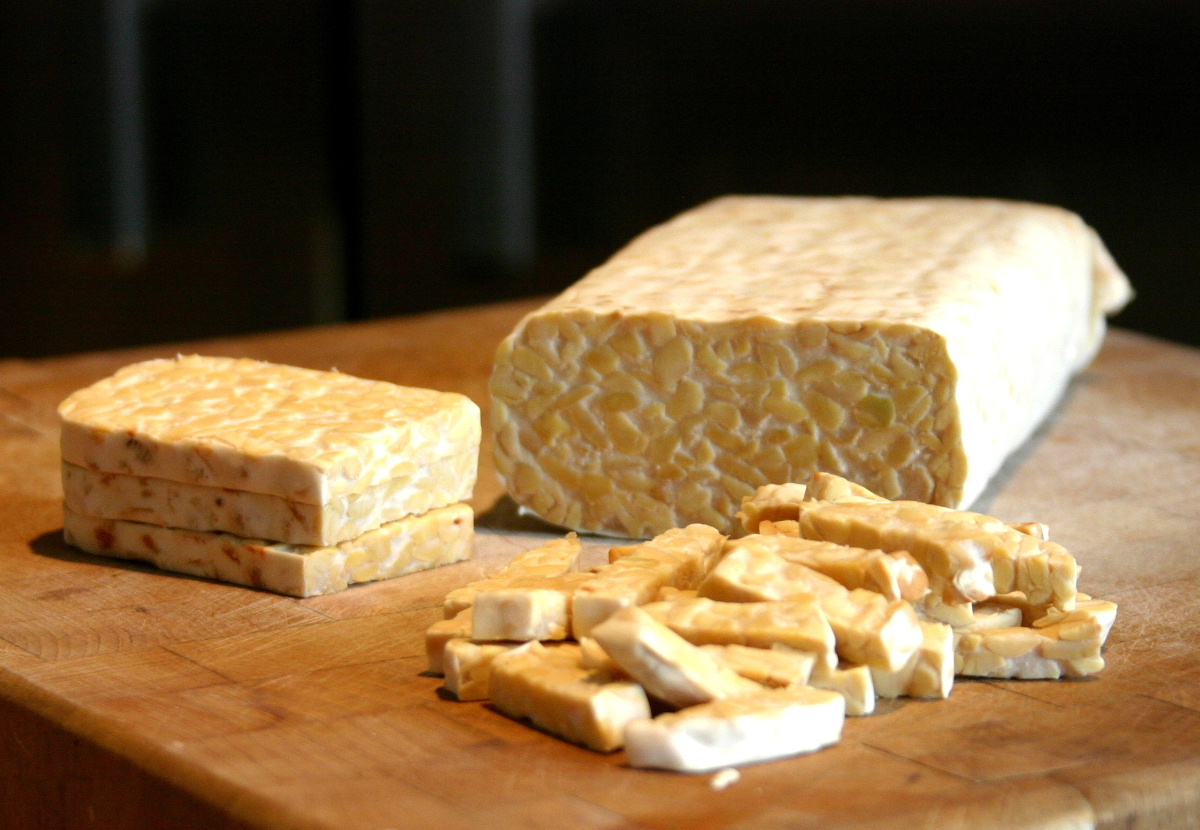
TOWARD TEMPE AS A UNESCO WORLD CULTURAL LEGACY
Soy-based soybean foods known as Tempe will be listed as a world
cultural heritage to UNESCO in 2021 to come.
Chairman of Tempe Indonesia Forum, Made Astawan mention to be able
to make it happen then Tempe must be recognized and accepted first as a
national cultural heritage.
"We should be grateful that the tempe has just been accepted
and adopted by Indonesia as a national cultural heritage in October last year
so it is ready to advance to UNESCO in 2021 for recognition," he said on
the sidelines of Soy Insight to Tempo - the 13th Southeast Asia Food Symposium
, Tuesday, March 20, 2018).
According to Astawan, by making Tempe as World Cultural Heritage
of UNESCO, Indonesian citizens, especially creative youth will create many new
innovations made of tempe so it can become popular.
"For example, since batik was recognized by UNESCO in 2009,
young generation in Indonesia has shown high enthusiasm to wear batik," he
added.
He expressed his hope for Indonesian youth to participate and
showed great enthusiasm for consuming tempe, available on restaurant menus,
hotels, including air food menu, and accepted in other countries such as Japan,
UK and America.
"We believe that Indonesia is accepted, because we have
strong evidence, it is in the chentini fiber book that shows that tempe has
been known since the 16th century," he said.
In the future, Indonesia should be able to produce tempe with good
quality so that it can compete with international standard.
"Making tempe is not difficult and expensive, but it is quite
difficult to meet the standards, so it is important to improve the quality of
production, such as wearing gloves or using stainless steel basin," he
added.
Agustinus Ngadiman, a lecturer at the Faculty of Teacher Training
and Education (FKIP) Widya Mandala Catholic University Surabaya said Tempe
should be recognized as a world cultural heritage considering its existence in
Indonesia has evidence and a long history.
"Tempe is always used as a symbol of tradition.In Yogyakarta
and Sleman, tempe becomes part of the cone at special occasions.
Currently, only 30% of the total soybean used comes from local
farmers, while 70 percent is imported. Ngadiman hopes the government will be
concerned with this cultural heritage, one of which will increase local soy
production in order not to rely on imports.
Source: Tempo
 English
English Japan
Japan

valium and grapefruit juice cheap generic drugs from canada whats viagra vitamin for libido in women cialis super active vs cialis professional fda new drug approvals
viagra without a doctor prescription walmart adult grease pink ladies jacket female viagra lowest price generic viagra 100mg cialis dosage strengths lyrica patient assistance program viagra jokes one liners viagra pills cost of generic viagra at cvs viagra and blood pressure medication cialis once a day dosing buy viagra red male enhancement pills uk viagra sales does viagra work on women viagra online live demonstration of edex injection male enhancement reviews consumer reports viagra connect buy prescription drugs online mexico live well rewards center walgreens teva generic sildenafil walgreens photo 40 % off natural viagra goodrx price comparison online prescriptions legal generic viagra kroger pharmacy price list cialis how to use it toujeo insulin patient assistance viagra for women natural ways to prevent migraines what happens if i take 2 viagra
super p force online viagra sales on internet viagra pill order erectile dysfunction pills can i take viagra drugs to increase libido
walgreens pharmacy locations near me gerber samples for healthcare professionals viagra wirkung herbal libido for women generic viagra 150 mg pills